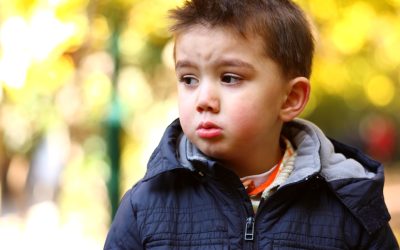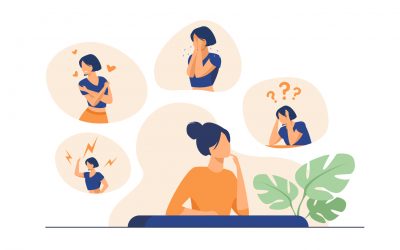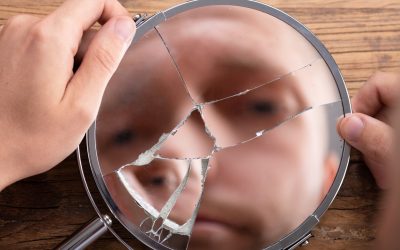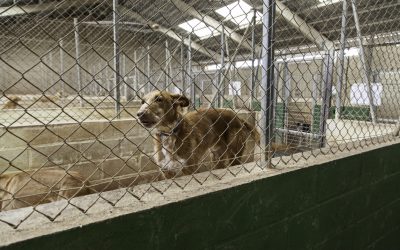Root Causes
A deeper dive helps us heal and changePermanent Behavior Change Requires Getting to the Root
Permanent behavior change requires us to get to the root of the problem: the thoughts creating the emotions driving our actions. Asking ourselves certain questions helps us uncover those core beliefs.
Understanding Adverse Childhood Experiences (ACEs): Healing from Trauma through Developing Resilience
Adverse childhood experiences, or ACEs, are traumatic events that occur in childhood, but whose effects linger into adulthood. While the trauma of ACEs can affect a person’s physical and mental health, as well as their social and emotional well-being, there are factors which build resilience and mitigate their impact.
Overcoming Perfectionism: Strategies for Managing Anxiety and Improving Relationships
Perfectionism can be a good if it motivate us to do our best and achieve our goals. However, it can also have some negative effects on us, our relationships, and the people around us.
Mommy Dearest – How Wounds from Mom Affect Us Later in Life
In the 1978 book and 1981 movie, Mommy Dearest, Christina Crawford describes physical and emotional hurts inflicted upon her by her mother, Joan. The portrayal of Joan as an abusive, neglectful, and alcoholic parent is controversial, but the potential damage from...
Beyond Anger: Identify the Real Emotion
A couple of years ago while at a restaurant in Mexico, I quickly searched “the check, please” on my phone. The result came back as “comprueba, por favor”—which, I found out, does not mean “could you bring me the check?” Like the search result from my faulty app, anger...
Hurt People Hurt People: Emotional Wounds and the Intergenerational Cycle of Abuse
To outsiders, it seemed Mario grew up in a perfectly normal, happy family. Sadly, the reality was much darker. His mother, an alcoholic, emotionally and sometimes physically abused him. Mario swore he would break the intergenerational cycle of abuse and never cause...
Understanding a Major Cause of Domestic Violence: The Link Between Identity and Behavior
Those of us working to stop violent or abusive behavior often find changing our actions can be stubbornly difficult. It’s not until we focus on the link beween identity and behavior that we’re able to make much headway. It turns out that identity—how we see...
Discovering Self-protection at the Core of Harming Others
The first time Kevin came to our group, he wasn’t completely convinced he needed to be there. He knew that using violence toward his partner was wrong, but he also didn’t think he should have to take everyone’s crap. As he dug deeper, Kevin discovered that his “tough”...
Letting Go of Resentment to Stop Domestic Abuse and Relationship Well-Being
Jamal kept tight reins on his wife: making decisions, controlling their money, and telling her how to dress. In his mind, he needed to stay in charge to keep her from embarrassing herself and him. He’s been humiliated enough in his life as a kid, and he swore he was...
Attachment Style May Explain Emotional Control Challenges Common in Domestic Violence
As I worked to change my abusive and sometimes violent behavior, I wondered: why do I struggle with emotional control when other people don’t? Why am I so sensitive to certain situations, while others think nothing of them? If you’re asking the same questions, the...
The Hidden Factor Behind Abusive Behavior: Low Self-Esteem
Domestic violence and abuse can take many forms. On the surface, acts like physical abuse, emotional manipulation, and excessive jealousy seem to be very different things. When we dig deeper, however, we often find there’s one key factor driving all of this abusive...
Why am I Upset When My Team Loses?
I will always be a loyal fan of the Iowa State Cyclones. I have so many great memories of watching them with friends and family. But there are also a few not-so-great memories of times when they had a big game and... choked. Years ago, I used to get so upset when my...
How Fear Drives Domestic Violence: Understanding and Overcoming Fear-Based Abuse
Fear is an inevitable part of being human. But fear does not have to rule our lives or drive bad behavior. By naming, challenging, facing, caring less, or accepting it, we can reduce or eliminate its power.
The 5 Whys Technique for Getting to the Root of Problem Behavior
“I did it again!” Justin lamented as he talked about some bad behavior that he was trying to change. He swore he was going to stop, yet some of his poor reactions seemed to refuse to go away. Permanently stopping conduct that hurts our partner and ourselves is vital,...
Father’s Day: Time to Celebrate Dad or Revisit Childhood Wounds?
Will you call, send a card, give a gift, or hang out with your dad this Father’s Day? Or is Father’s Day not a day of celebration because your relationship with him is strained or non-existent? Father’s Day for many of us reminds us of the broken relationship we have...















